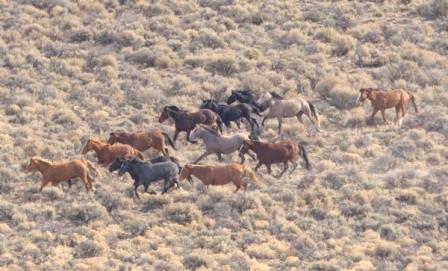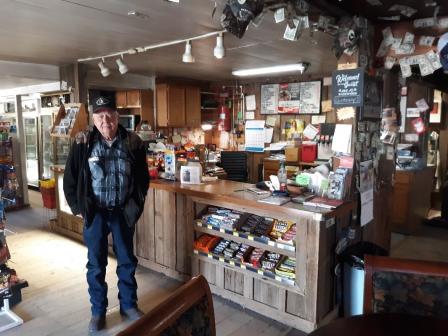
In the Oregon Outback, an Iconic General Store Powers through the Pandemic with EDA Support

In some rural parts of Eastern Oregon, the 1979 oil crisis wasn’t felt the same way it was in Seattle, Portland, or Boise.
“We’ve never run out of gasoline to sell, but then we don’t sell a helluva lot,” Lloyd Grisel, then the owner of Hart Mountain Store in Oregon’s sparsely populated Lake County, was quoted in a July 1979 UPI article.
Forty years on, however, Hart Mountain Store is doing a brisk business in both fuel and food thanks to a new surge of interest in outdoor recreation. Situated in the middle of a vast stretch of high desert known as the Oregon Outback, the outfitter and eatery services the 57 residents of Plush, Oregon in much the same way it’s done since the 1930s. Operating as a general store, filling station, and roadside restaurant, it’s a gathering place where ranchers come to pick-up essentials or meet distant neighbors at the end of a branding day. The store was a regular stop for the late cowboy poet Leon Flick and, for tourists driving north, it’s the last filling station for 130 miles.
Just shy of 120,000 people live in the Oregon Outback, an area roughly twice the size of Maryland. According to Betty Riley, Executive-Director of the South Central Oregon Economic Development District (SCOEDD) — an Economic Development Administration (EDA) designated Economic Development District (EDD) serving Klamath and Lake counties — anecdotal reports from the region’s merchants point to an uptick in visitors seeking to take advantage of the area’s sprawling public lands like the Hart Mountain National Antelope Refuge and the Steens Mountain Wilderness.

Enhancing his ability to serve visitors and residents alike was part of the reason David Heath, current owner of Hart Mountain Store, sought to invest in refurbishing and renovating the iconic retail establishment. While Heath was able to secure a private loan from a local businessman for store upgrades, the infusion of a CARES Act Recovery Assistance grant into SCOEDD’s EDA-capitalized Revolving Loan Fund (RLF) made the resources available by which he could refinance that loan to take advantage of the RLF’s more favorable lending terms and a two-percent lower interest rate.
"It allowed us to offer some very flexible terms, such as one year of principal repayment," explains Riley. "It will allow Mr. Heath to pay off his loan sooner and to get out of debt."
Despite the ongoing coronavirus pandemic, Heath reports that the refreshed and renovated Hart Mountain Store set sales records nearly every month of the last year. Meanwhile, improved loan terms are allowing him to invest in additional amenities for the shop, such as a self-serve milkshake machine. And, the capital freed from the early repayment of Heath’s private loan is being repurposed by that lender to support development of a new RV park in Lake County, helping serve the region’s burgeoning tourist economy.
EDA provides Economic Adjustment Assistance grants to eligible recipients to capitalize or recapitalize lending programs that service businesses that cannot otherwise obtain traditional bank financing. To learn more about EDA’s RLF program, visit the RLF section of the EDA website.
